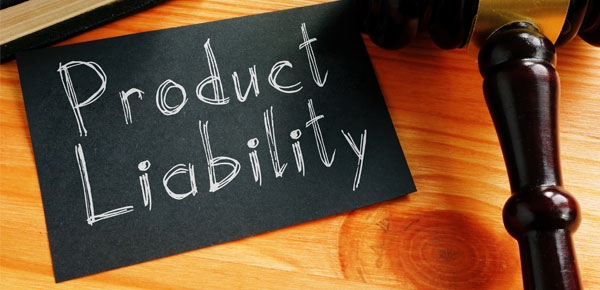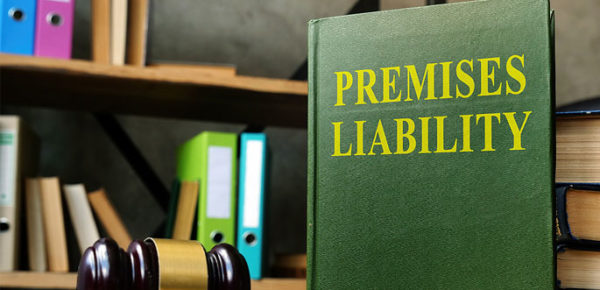A car accident can be terrifying. It can result in injuries, cause trauma, and end with extensive damages, both economic and non-economic. These can range from medical bills, lost wages, and disabilities to loss of property, PTSD, and missed opportunities. Understanding how to calculate damages in an auto accident case can go a long way toward helping you to prepare your case for negotiations or trial and understanding the legal process along the way.
The Different Types of Damages in Auto Accident Cases
Economic damages
In auto accident cases, there are various types of damages recognized under California law. Economic damages are the financial losses accrued due to an accident. These damages span several categories, including medical expenses, property damage, and lost wages.
Medical expenses can include the cost of treatments, medications, and hospitalization. Property damage covers the expenses to repair or replace damaged belongings or real estate. Lost wages and earning capacity refer to the income and potential earning capacity that may have been affected by the accident, including missed work, reduced hours, or future work limitations. It’s important to consider these different aspects when seeking compensation for your auto accident case.
These economic damages aim to compensate individuals for the tangible financial losses they have experienced, providing them with the necessary resources to recover and rebuild their lives.
Non-economic damages
Non-economic damages acknowledge that certain losses cannot be simply calculated in financial terms. These damages include the emotional and psychological impact that an individual may suffer due to an accident.
This can include pain and suffering, regarding the physical and emotional distress experienced by the injured party.
Emotional distress illustrates the mental anguish, anxiety, and trauma caused by the event.
Loss of consortium recognizes the impact on a person’s relationship with their spouse or family members due to the injuries suffered.
These non-economic damages aim to acknowledge and compensate for the intangible losses and hardships faced by individuals, ensuring that they receive the necessary support and recognition for their pain and emotional trauma.
Calculating Economic Damages
Medical expenses
When it comes to your personal injury case in California, accurate calculation of economic damages is key. A significant factor to consider is your medical expenses, including both current and future costs. Rehabilitation and therapy expenses are also taken into account, ensuring you receive the necessary care for your recovery. Seeking fair compensation means prioritizing your well-being and ensuring access to proper medical attention. The ultimate goal is to secure fair compensation that encompasses all your medical expenses, both past and future. This way, you can focus on healing and moving forward in your life, unburdened by the financial implications of your injury.
Property damage
When it comes to calculating economic damages under California law, it’s important to consider property damage as well. This includes assessing the costs of repairing or replacing your vehicle and ensuring you’re compensated for the expenses incurred. Additionally, it takes into account the damage caused to your personal belongings, recognizing their value and the emotional attachment you may have to them. By accurately evaluating these economic damages, your attorney can build a stronger case to provide you with the necessary compensation to restore what was lost and alleviate the financial burden associated with property damage.
Lost wages and earning capacity
When it comes to lost wages and earning capacity under California law, it’s essential to consider the financial impact caused by your injury. This includes calculating the income you have lost during your recovery period, taking into account the wages you couldn’t earn due to your inability to work. Moreover, it’s also important to consider the potential future loss of earning capacity resulting from any disabilities you may have sustained. The goal is to ensure that you are fairly compensated for these economic damages, providing you with the means to recover financially and secure your future despite the setbacks caused by the injury.
Assessing Non-Economic Damages
Pain and suffering
When it comes to assessing non-economic damages under California law, it’s important to consider the human side of the equation. One significant aspect is pain and suffering, where various factors influence the value assigned to these damages, such as the severity of the injury, the duration of the pain, and the impact on your daily life. Calculation methods may involve the use of multipliers or per diem rates to determine a fair compensation amount.
Emotional distress
Emotional distress is another important consideration, taking into account the psychological impact caused by the incident. Expert testimony and supporting evidence can help establish the extent of the distress and its associated damages.
Loss of consortium
Loss of consortium also holds weight, acknowledging the impact on your relationships and family dynamics. Compensation may be provided for the loss of companionship and support, recognizing the strain placed on marital relationships and the overall family unit.
By carefully assessing these non-economic damages, California law aims to ensure that you receive just compensation for the pain, emotional distress, and loss of consortium you have endured. The goal is to provide support and recognition for the intangible losses you have experienced, allowing you to find solace and begin the healing process.
Proving Damages in Auto Accident Cases
Gathering evidence and documentation
When it comes to proving damages in auto accident cases under California law, it’s crucial to focus on the human element.
Gathering evidence and documentation plays a vital role in supporting your claim. This includes collecting your medical records and bills to demonstrate the extent of your injuries and the related medical expenses.
It’s also important to gather proof of the property damage sustained in the accident, along with the associated repair costs. Employment records and income verification can further establish the financial impact caused by the accident.
Expert testimony and opinions
Expert testimony and opinions can significantly strengthen your case. Medical experts can provide professional insights into your injuries, prognosis, and necessary treatment. Vocational experts can assess the impact of the accident on your ability to work and your future earning capacity. Mental health professionals can offer valuable testimony regarding the emotional and psychological effects of the accident.
By presenting a comprehensive collection of evidence and expert opinions, the aim is to build a strong case that highlights the damages you have suffered. California law recognizes the importance of establishing the human impact of auto accidents, ensuring you receive the compensation you deserve to help you move forward and rebuild your life.
Statutory Limitations on Damages
In California, there are certain limits or “caps” on the amount of money you can receive for non-economic damages in auto accident cases. Non-economic damages include compensation for pain, suffering, and emotional distress. The cap for non-economic damages in most personal injury cases is around $250,000. These caps are set by state laws and serve as limitations on the maximum amount you can receive for these types of damages. It’s important to understand these limitations and consult with a knowledgeable attorney who can guide you through the legal process and help you pursue the compensation you deserve.
Conclusion
When it comes to calculating damages in auto accident cases, it’s important to understand all of the factors involved and the importance of accurate assessment and documentation. From medical expenses and property damage to lost wages and earning capacity, each of these components plays a key role in determining the compensation you are entitled to. Seeking professional legal counsel is essential to navigate the complex legal landscape, ensuring your rights are protected, and maximizing your chances of receiving fair compensation. Remember, having a knowledgeable attorney by your side can make a world of difference in achieving a favorable outcome for your case.


























